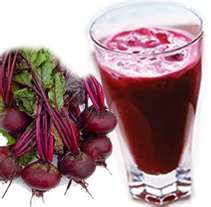Probiotics - Gatekeepers of Our Health
When you mention bacteria most people think harmful bacteria. After all, we are all familiar with bacterial infections, right?
But did you know that there are trillions of microbes, or bacteria, in your body? About 99% of them are friendly bacteria.
Most of the microbes live in our digestive system. Approx 3½ to 5½ lbs live in the adult gut. These bacteria, also called flora, are highly organized. The vast majority of the species of bacteria in our gut have various functions and work in harmony to keep us healthy. In fact we need them for our very survival.
Gut microbes can be divided into 3 groups:
Beneficial flora. These are the good guys that we usually call probiotic bacteria and beneficial yeasts. The entire surface of our digestive system is covered with friendly bacteria. They provide a natural barrier and protect us from invaders such as parasites, fungi, viruses, toxins and harmful bacteria.
Additionally, some of the beneficial bacteria produce antibiotic-like substances that fight fungal and viral bacteria. By maintaining optimal pH levels, harmful bacteria are kept in check. The stomach, which is all about acid, has an optimal pH of between 1.5 and 3, whereas the intestines require a more neutral pH.
Transitional flora. These come from the daily ingestion of food and drink. They don’t take up residence and are just passing through. With sufficient probiotic bacteria, a healthy gut will overcome these transient bacteria and do very little harm. On the other hand, with an unhealthy gut, these bacteria can cause us considerable harm. Take food poisoning or e-coli for instance; some people may get a very mild case while others are hospitalized. The difference is who controls and owns your gut – the good or the bad bacteria.
Opportunistic flora. These are various bacteria, fungi and viruses that are capable of causing serious health problems. In the human gut there are approximately 500 known species of pathogenic microbes. Depending on a person’s degree of healthy bacteria, these harmful and opportunistic flora are either tightly controlled by beneficial flora, or allowed to propagate and take over.
Remember, our good bacteria are vulnerable to attack. How does this happen?
Probiotic (for life) vs. antibiotic (against life).Unfortunately beneficial bacteria are quite vulnerable to modern drugs, in particular antibiotics. It’s been said that when antibiotics destroy the beneficial flora, it may take one to two months for them to recover.
Most drugs, both prescription and over-the-counter, can damage your beneficial bacteria. This is especially true when taken for long periods of time. Examples of these drugs: painkillers, contraceptive pills, steroids, sleeping pills, anti-psychotic and anti-depressant drugs, immunosuppressive cytotoxic drugs, and more.
Although drugs are to blame for most of the damage, there are other factors to consider. Consuming overly processed or damaged foods will contribute to an imbalance of healthy gut flora. Sensitivity or allergy to certain foods not only will destroy beneficial bacteria, but can severely damage the gut, leading to a whole host of health problems.

It has been said that up to 85% of the body’s immune system is located in your gut. Maintaining a healthy colony of beneficial probiotic flora is absolutely essential to good health. Avoid and eliminate exposure to the destroyers of health. And encourage healthy gut flora by consuming cultured or fermented foods.
Want to learn more? Join Simon, along with guest host Betsy Hicks of Elementals Living, as they talk about some of the many health benefits of fermented vegetables. You can listen to the recorded Voice America Radio interview here: http://www.voiceamerica.com/episode/61970/family-friendly-fermented-vegetables
The good news is that raw fermented vegetables and juices are not only a way to enhance your digestion by providing the beneficial bacteria you need - they’re also a delicious and varied addition to your everyday meals!
Disclaimer: These statements have not been evaluated by the Food and Drug Administration. These products are not intended to diagnose, treat, cure, or prevent any disease.
Information provided in this article is not designed to and does not provide medical advice, professional diagnosis, opinion, treatment, or services to you or to any other individual. This is general information for educational purposes only. The information provided is not a substitute for medical or professional care, and you should not use the information in place of a visit, call, consultation, or the advice of your physician or other healthcare provider. Wise Choice Marketing Inc is not liable or responsible for any advice, course of treatment, diagnosis, or any other information, services, or product you obtain through Wise Choice Marketing Inc.


 Loading... Please wait...
Loading... Please wait...













